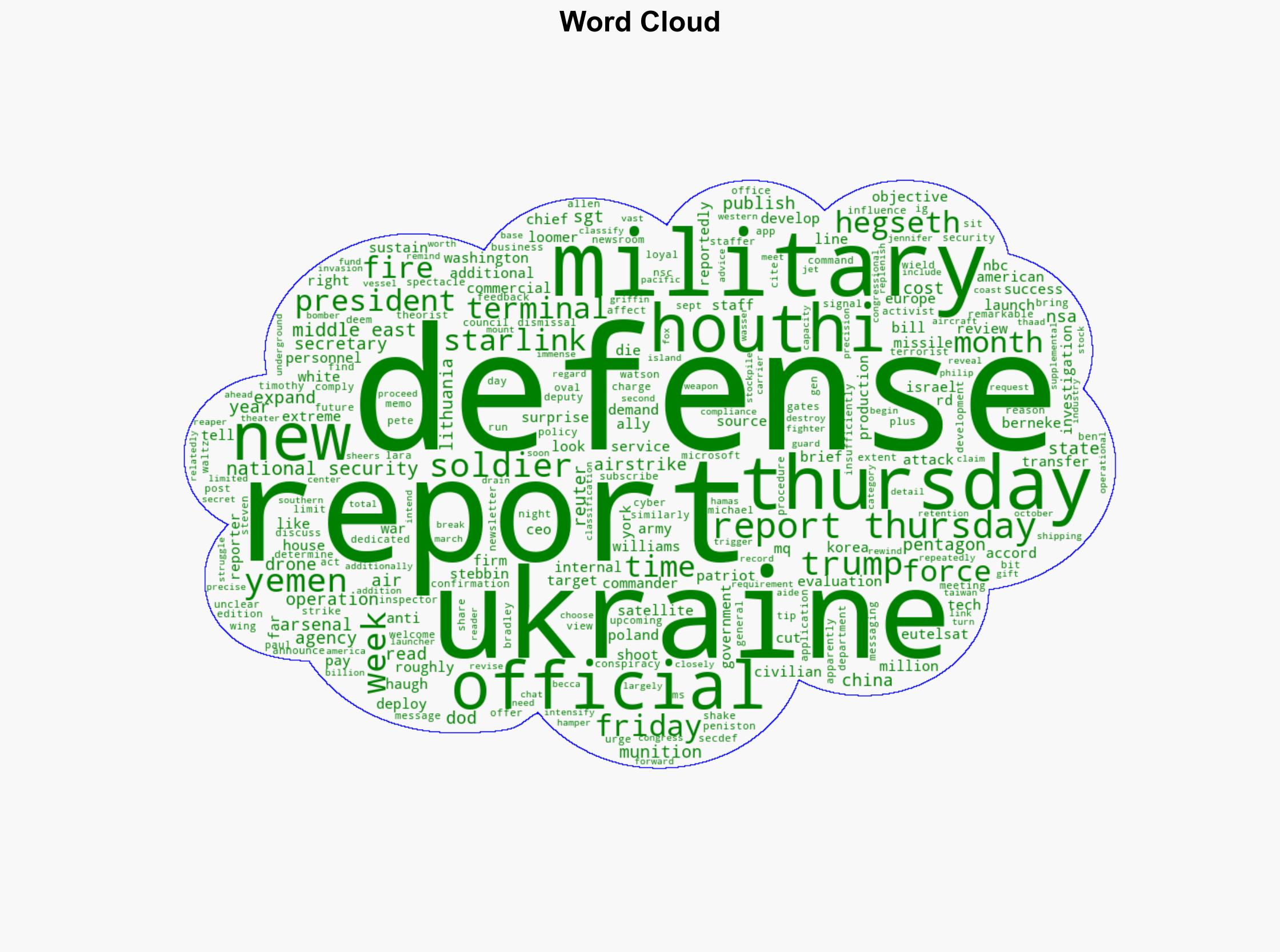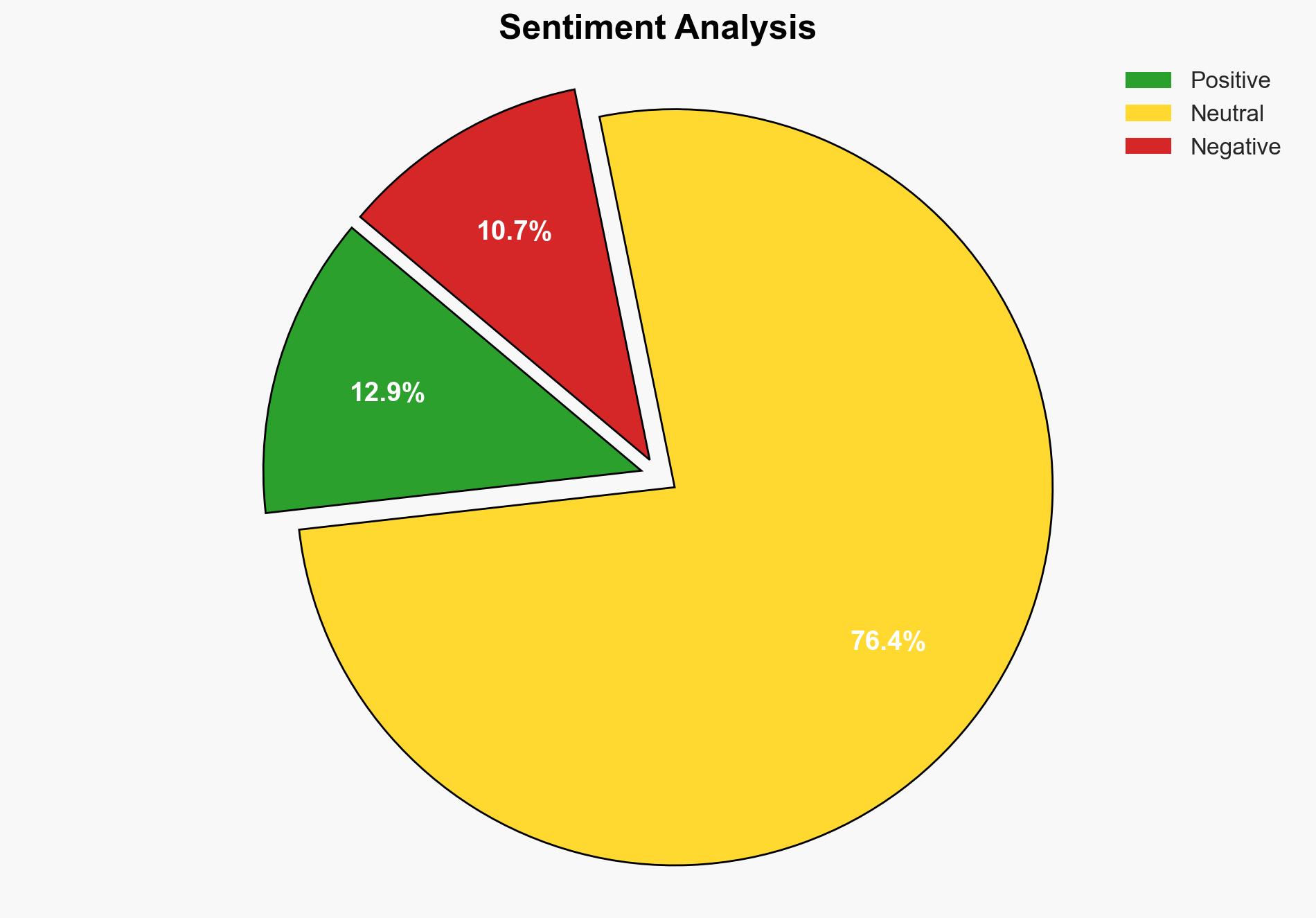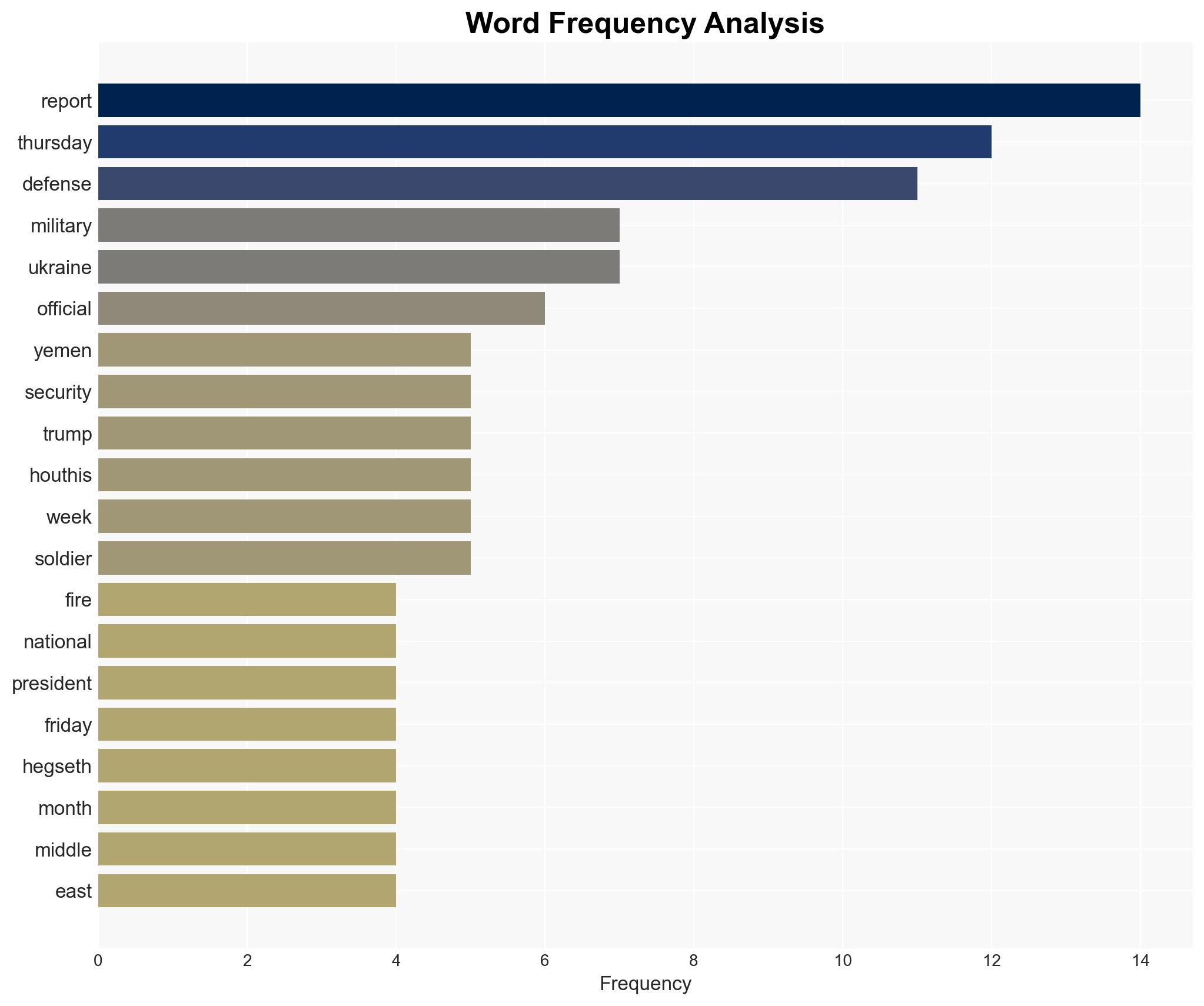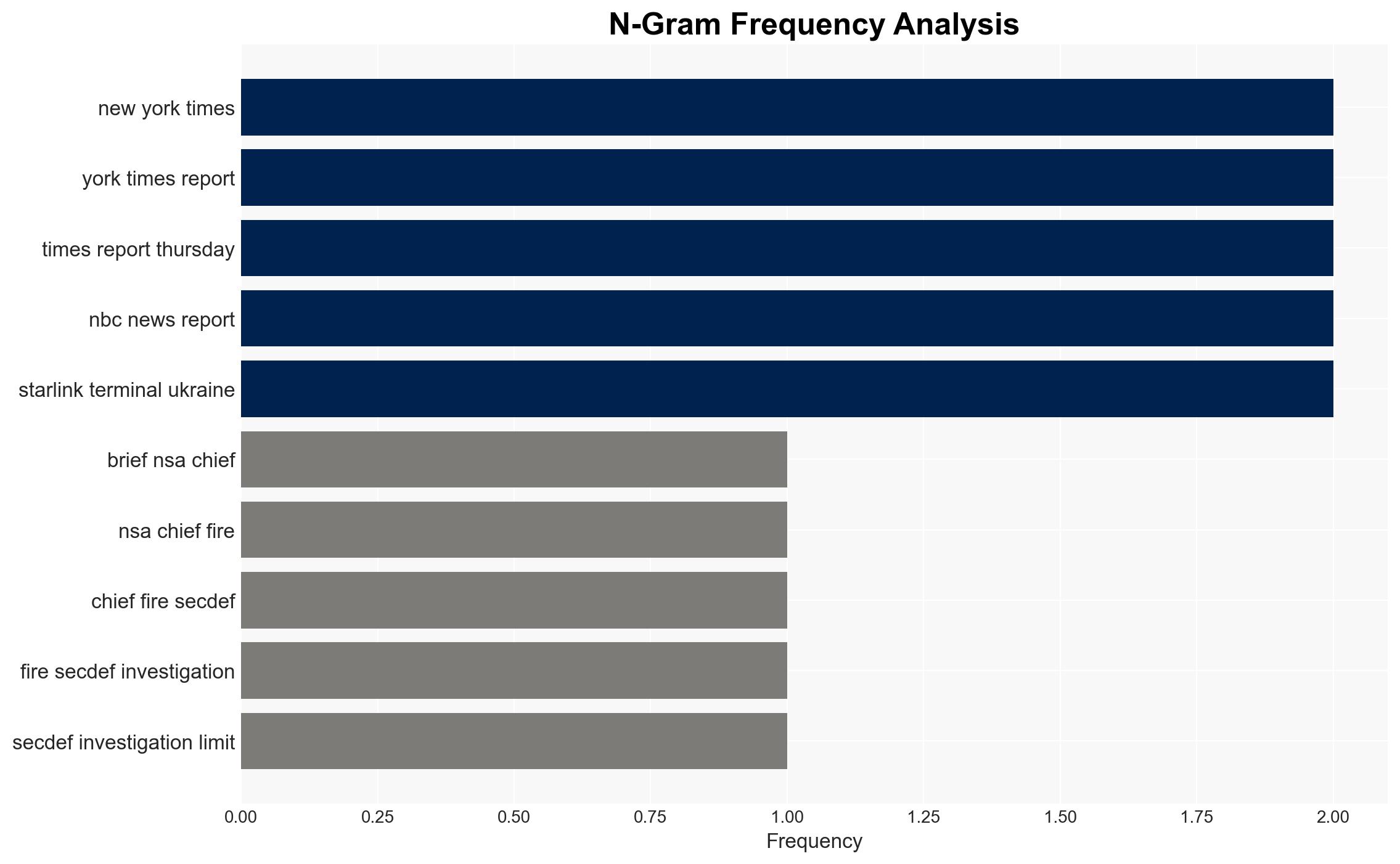The D Brief NSA chief fired SecDef under investigation Limited success for Yemen strikes Chinas anti-sat arsenal And a bit more – Defense One
Published on: 2025-04-04
Intelligence Report: The D Brief NSA chief fired SecDef under investigation Limited success for Yemen strikes Chinas anti-sat arsenal And a bit more – Defense One
1. BLUF (Bottom Line Up Front)
Recent developments indicate significant changes in U.S. national security leadership and ongoing military operations. The dismissal of Timothy Haugh from the National Security Agency and Cyber Command, along with an investigation into Pete Hegseth for potential breaches of protocol, highlight internal challenges. Meanwhile, U.S. military operations in Yemen face limited success, and concerns about China’s anti-satellite capabilities persist. Immediate attention to leadership stability and strategic military planning is recommended.
2. Detailed Analysis
The following structured analytic techniques have been applied for this analysis:
General Analysis
The removal of Timothy Haugh appears to be influenced by internal political dynamics, as indicated by the involvement of Lara Loomer. This raises concerns about the influence of external actors on national security decisions. The investigation into Pete Hegseth centers on the use of unsecured communication channels for sensitive military operations, which could compromise operational security.
In Yemen, U.S. airstrikes have had limited impact on Houthi capabilities, with significant costs incurred. The Houthis’ ability to down U.S. drones and attack commercial vessels underscores the need for enhanced countermeasures. Concurrently, China’s expanding anti-satellite arsenal poses a strategic threat to U.S. space assets, necessitating a review of space defense strategies.
3. Implications and Strategic Risks
The leadership changes and investigations within the U.S. defense apparatus could lead to temporary disruptions in strategic operations and decision-making. The limited success of military operations in Yemen may embolden adversaries, affecting regional stability. Additionally, China’s advancements in anti-satellite technology could undermine U.S. military and intelligence capabilities, impacting global security dynamics.
4. Recommendations and Outlook
Recommendations:
- Conduct a thorough review of internal security protocols to prevent external influence on national security decisions.
- Enhance operational security measures for military communications to prevent unauthorized disclosures.
- Reassess military strategies in Yemen to improve effectiveness and reduce operational costs.
- Strengthen space defense capabilities to counter China’s anti-satellite advancements.
Outlook:
Best-case scenario: Stabilization of leadership within the U.S. defense sector and successful adaptation of military strategies in Yemen and space defense.
Worst-case scenario: Continued internal disruptions and strategic setbacks in Yemen and space, leading to increased regional instability and vulnerability to adversaries.
Most likely scenario: Gradual improvements in internal security and military operations, with ongoing challenges in countering external threats.
5. Key Individuals and Entities
The report mentions significant individuals such as Timothy Haugh, Pete Hegseth, and Lara Loomer. Organizations involved include the National Security Agency, Cyber Command, and the U.S. Department of Defense. These entities play crucial roles in the current national security landscape.





